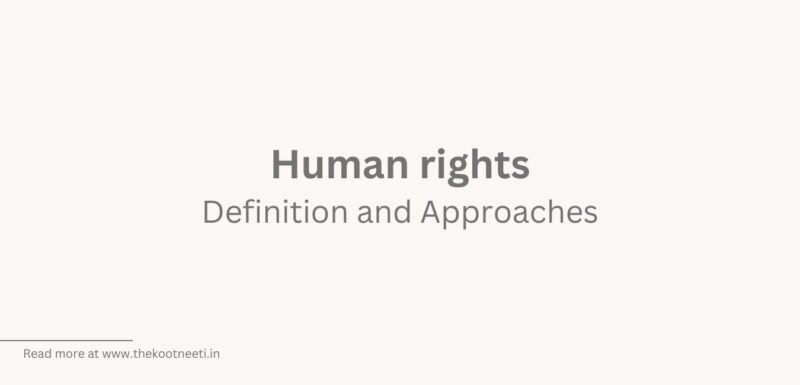Human rights: Definition and Approaches

Human rights are rights that are believed to be inherent to all human beings, regardless of their nationality, race, religion, gender, or other status. Human rights include a wide range of rights, including the right to life, liberty, and security of person; the right to education, health, and housing; and the right to freedom of expression, assembly, and association.
Human rights are protected by international law, including the Universal Declaration of Human Rights, which was adopted by the United Nations in 1948. The protection of human rights is a central concern in international relations and global politics, and is often a key factor in the development of foreign policy and international relations.
Human rights violations, such as torture, discrimination, and genocide, are a major concern in international relations, and have led to efforts to address these issues through international law, diplomacy, and humanitarian intervention.
There are several approaches to the promotion and protection of human rights. Some of the main approaches are:
- Legal approach: This approach focuses on the development and enforcement of laws and regulations that protect human rights. This can include national laws, as well as international human rights treaties and conventions.
- Political approach: This approach involves using political pressure and advocacy to promote and protect human rights. This can include campaigning for the passage of laws and regulations that protect human rights, as well as lobbying governments and international organizations to take action to address human rights abuses.
- Economic approach: This approach focuses on using economic measures to promote and protect human rights. This can include using economic sanctions or incentives to encourage states to respect human rights, as well as supporting economic development programs that improve living conditions and promote human rights.
- Social approach: This approach involves working with communities and civil society organizations to promote and protect human rights. This can include supporting grassroots activism, as well as working with local organizations to provide education and training on human rights issues.
- Military approach: This approach involves using military force to protect human rights. This can include intervention in conflicts to protect civilians from harm, as well as providing military support to governments or organizations that are working to promote and protect human rights.
Overall, the most effective approach to the promotion and protection of human rights often involves the use of a combination of these different approaches, tailored to the specific context and needs of a particular situation.


















